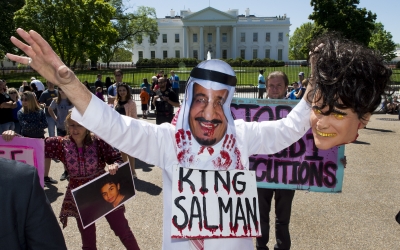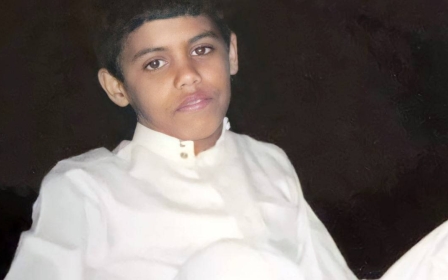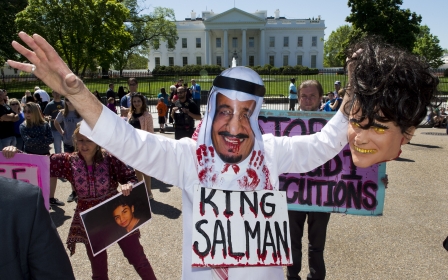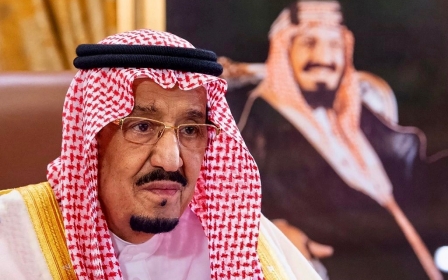Saudi Arabia: Rights group warns kingdom still issuing death sentences for children
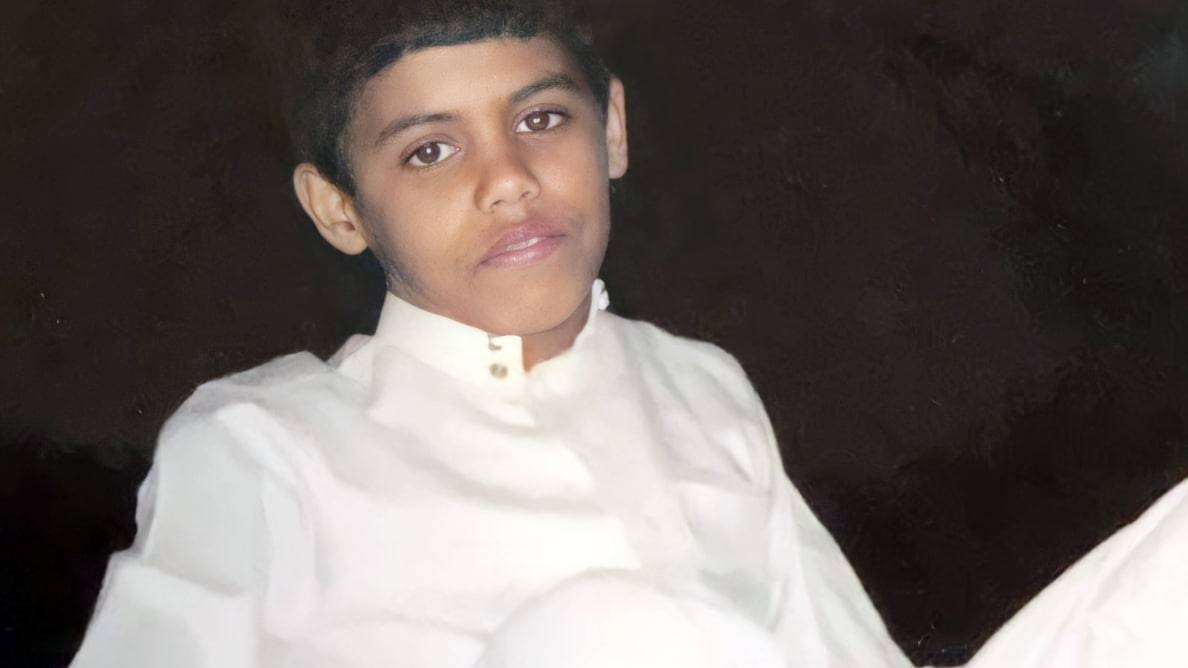
Saudi Arabia is continuing to issue and ratify the death penalty for detainees who were arrested and charged as children, despite repeated assurances from the kingdom that it had halted the practice, a rights group has warned.
The European Saudi Organisation for Human Rights (ESHOR) named several child offenders who were facing the death penalty following recent rulings in the Saudi courts.
Citing the intimidation of, and oppression against, civil society groups and families in the kingdom, the group said it feared the actual number of cases was far higher.
In 2018, Saudi Arabia introduced the Juvenile Law, which stipulated that for crimes committed by minors requiring the death penalty, juveniles should be admitted to detention centres for a period not exceeding 10 years.
However, the government carved out exceptions to the law which made it clear that the Juvenile Law as a whole, including those sections which define juvenility, does not apply in certain circumstances.
In April 2020, Saudi Arabia introduced a royal decree allowing the law’s provisions to be applied retrospectively.
Under international law, children may be detained only as a last resort and for the shortest appropriate period of time, and sentencing a child to death is absolutely prohibited.
Citing several of the same individuals facing the death penalty highlighted by the ESHOR, Diana Semaan, Amnesty International’s acting deputy director for the Middle East and North Africa, said last week: “Sentencing people to death for crimes that occurred when they were under the age of 18 is a clear violation of international human rights law.
"The Saudi Arabian authorities have promised to end the use of the death penalty in such cases, yet the brutal reality is that these young men are facing an abbreviated existence.
“[Saudi King Salman] should not ratify these death sentences and should immediately halt all imminent executions and order re-trials that must be fully consistent with international fair trial standards, without recourse to the death penalty.”
The ESHOR says Saudi Arabia had executed at least 12 minors, or those charged as children, since 2016, despite condemnation from rights groups.
'I was beaten and threatened'
The ESHOR has named offenders who were charged as minors currently facing the death penalty as Abdullah al-Hwaiti, Jalal al-Labad, Abdullah al-Darazi, Youssef al-Manasif, Jawad Qureiris, Hassan Zaki al-Faraj, Ali Hassan al-Subaiti and Mahdi al-Mohsen.
Labad was initially sentenced to death on 1 August for alleged crimes that occurred when he was 16 and 17 years old.
According to Amnesty, he was held in pretrial detention for around two years during which he was subjected to psychological and physical torture, including sleep deprivation over a period of three weeks.
'Everything in the "confession" is not true, and I was forced to confess as I was beaten and threatened'
- Abdullah al-Hwaiti, speaking during trial
Saudi Arabia's Specialised Criminal Court (SCC) convicted Labad on a wide range of charges, including chanting slogans that insulted state leaders while attending funerals of those killed by security forces.
On 4 October, the court of appeal verified the sentence and turned it to the kingdom's Supreme Court.
On 8 August, the SCC's court of appeal upheld the death sentence against Darazi, who was arrested at the age of 16.
During his trial proceedings, Amnesty said Darazi had requested an independent medical evaluation of health conditions that he developed as a result of torture, something the court failed to provide.
Hwaiti, another of those at imminent risk of execution, was arrested in May 2017 at the age of 14 on charges of armed robbery and murdering a security officer.
His original trial was marred by controversy, as the evidence used against him and how it was obtained was questioned by human rights organisations. According to Human Rights Watch, he had an alibi putting him 200km away from the scene of the crime.
Following a re-trial ordered by the Supreme Court in 2021, he was re-sentenced to death by a criminal court in Tabuk on 2 March 2022.
According to Amnesty, Hwaiti refused to sign his testimony, telling the court: “Everything in the ‘confession’ is not true, and I was forced to confess as I was beaten and threatened... I was also told to change my testimony to match that of other defendants.”
Rampant abuses
According to the ESOHR, Saudi Arabia executed 120 people in the first six months of 2022, nearly double the number put to death in all of last year despite its promises to reduce capital punishment.
Most of the executions this year took place on one day in March when 81 men were put to death in the single largest mass execution in years.
Of those executed on 15 March, 41 were from Saudi Arabia's Shia minority, who have long complained of marginalisation in the kingdom.
Rights groups have repeatedly criticised what they describe as rampant abuses in Saudi Arabia’s criminal justice system.
Violations cited by the groups include long periods of detention without charge or trial, a lack of legal assistance, pressure to sign confessions and accept pre-determined prison sentences to avoid prolonged arbitrary detention, and ineffective or pernicious translation services for defendants.
The groups have also condemned Saudi courts’ reliance on torture-tainted confessions as the sole basis of conviction in certain cases.
Middle East Eye propose une couverture et une analyse indépendantes et incomparables du Moyen-Orient, de l’Afrique du Nord et d’autres régions du monde. Pour en savoir plus sur la reprise de ce contenu et les frais qui s’appliquent, veuillez remplir ce formulaire [en anglais]. Pour en savoir plus sur MEE, cliquez ici [en anglais].



